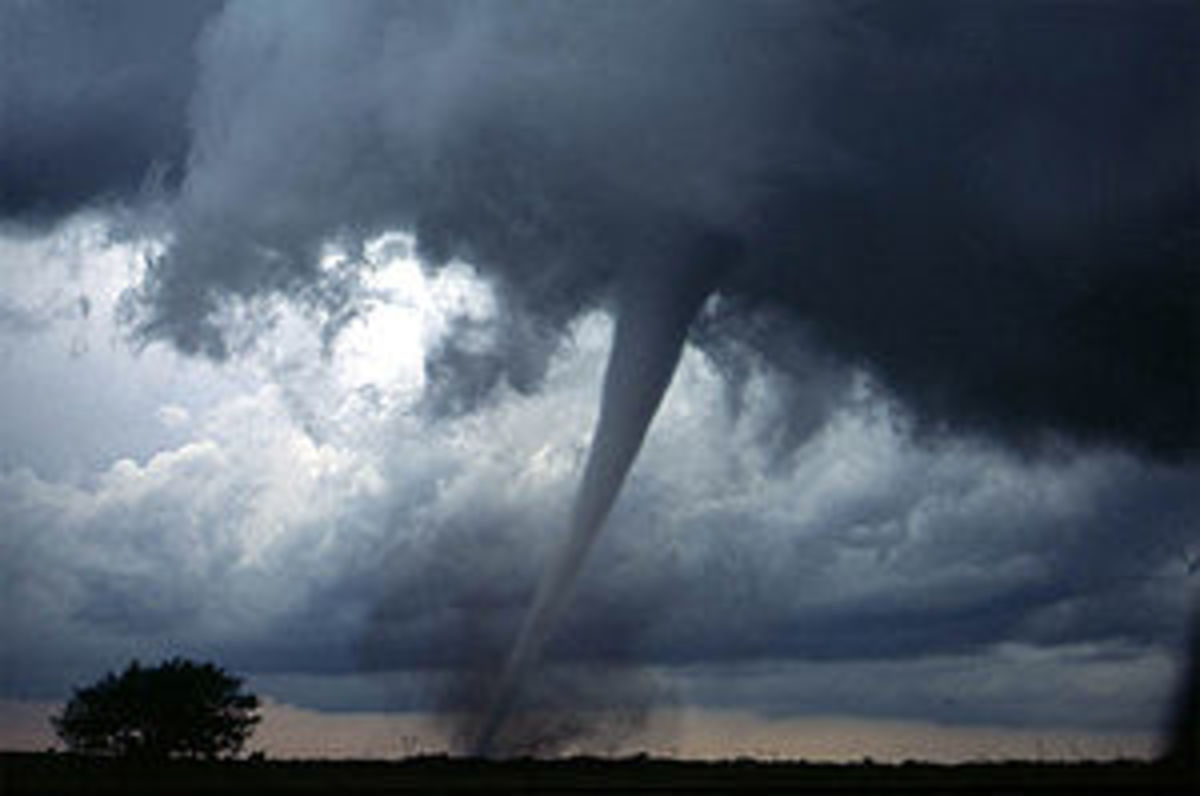17 Helpful Tips After a House Fire or Catastrophe
Protect yourself after a house fire
A house fire is traumatic enough to experience, however, what you do after the fire is almost as important as escaping the fire itself. The majority of people never experience a house fire in their lives. We survived over a half a century before we experienced our house fire. Even then, we were not expecting to have a house fire, or not nearly prepared for one…before or afterwards.
Our house caught on fire from a lightning strike in the middle of the night. Not realizing how the fire started until several hours later, we were still in shock for days. We did not think with clear heads. Our losses were traumatic emotionally, physically and financially. Since we never experienced a house fire, we didn’t have a clue what lied ahead.
I’ve outlined some of the key points that I wish I knew about prior to having to deal with the days and months after our fire. As we went through the motions of our lives following the fire, it seemed like a big blur in our lives. Dealing with the insurance company, Restoration Company, utility companies, friends, family and people that were curious seemed like a never ending stream of people that came into our lives on a daily basis.
While you may think your insurance agent/adjuster is there to help you, that is not always the case. Their priority is to save the insurance company money. Being prepared for a disaster is the best way to overcome one. The following is intended to prepare you for a house fire, but could also be a guide for other disasters, including tornado or hurricane damage.
Hopefully, this guide will help others in the event a tragedy strikes. Knowledge is the best power to help you overcome the obstacles of a disaster.
Before a house fire these are a few things you should do:
First off, update your Homeowners or Renters Insurance policy. Make sure you have “replacement cost” of the re-build and personal property. This is very important since the items you purchased ten years ago have obviously gone up in price. You need to be able to replace those items, so getting compensated for the increase in price is very important. If you have a lot of jewelry or antiques, make sure you have appropriate coverage for personal items.
Take pictures of your most valuable items in your home. Inventory as many of the items in your home as possible. Keep these pictures and inventory list updated as you purchase new items and keep them in a fireproof safe or safe deposit box. The main reason I state this is, in our case, we had a lot of items stored in boxes in the basement. Those items had been stored for many years and unfortunately disintegrated in the fire. Since we hadn’t opened these boxes in recent years, we did not remember what was in them; therefore, we weren’t able to claim the items on insurance. As months and years went by, we began to remember some of the items that were stored in the boxes. By then, it was too late to claim them as an insurance loss.
1. DO Get Out Safely! Obviously, this is most important! Your life and the lives of your loved ones (including pets) should be the main priority. Once you are out safely and have called 911, DO call a close friend or relative to come to your aid. The reason I state this is because while you are not thinking straight, you need that extra set of ears to help you understand what everyone is telling you. By that I mean, the insurance guy, the restoration company, the fire marshal, police, Red Cross and anyone else who may come to your “aid”. You need a friend or relative that does have your best interest at heart to help you sort through all the information and help you make the best decisions for you and your family.
2. Do NOT Sign Up With the First Restoration Company that arrives! While your first thought after the fire is extinguished is to retrieve or save some of your precious items, the first restoration company is not always the best. Even if your insurance company recommends them. Each restoration company is different, but most are in it for the money, not your best interest. They will tell you what you want to hear, knowing you are devastated and won’t be thinking clearly. Call at least two or three licensed restoration companies to come out and talk to them personally. (This is where a friend or relative comes in handy, to help you sort through the gibberish). When you have chosen a restoration company to help salvage any of your items and restore your home, GET EVERYTHING IN WRITING!
3. DO get everything in writing! Once you have chosen a restoration company, ask the key questions and have it put in writing. Some questions to ask: When will they begin work? Will they inventory as they remove items and give you a list of all items they remove from your home to clean? Where will they store your belongings until such time that they may be returned to you? Are they currently working on other big projects that would prevent them from working on your home consistently until you are able to move back in? (In our situation, once the restoration company got our signature to begin work, shortly afterwards they stopped work for six weeks to handle another big job while we were left hanging). How much experience do they have handling a job the size of your house fire? In other words, if you have a large home with a lot of contents and damage, how many jobs have they handled of this magnitude? Ask for references of other jobs they did similar to yours. Call these “customers” and ask if they were happy with the time frame, their work and the end result. Lastly, ask when they will have your home completed so you can move in. The day of our fire, the restoration company told us we would be back in our home in three months. That “three months” lasted five months, due to THEIR unprofessionalism and inability to handle a job the size of our house fire! Our home probably would not have been completed then if I hadn’t threatened to quit signing their checks.
4. Do NOT fall for the “would you like to make any changes to your home?” While this question might be okay in some instances, remember it doesn’t come without a cost. The restoration company is out to make as much money as they can. You might think they are being nice, caring, or changes may be covered under your insurance, but remember any major changes will result in money coming out of YOUR pocket when all is said and done. You may not realize it or they won’t mention it until all the work is done and you are handed an invoice for several thousand dollars. The owner of the restoration company that did our work was talking about how he had to sue someone for over 30k for “changes” she wanted in her home after her fire. My guess is she didn’t realize that these changes that were offered were above and beyond what her insurance coverage was, so she probably was not aware that there would be additional charges after the fact. The restoration company can and will sue you and put a lien on your home if you do not pay for the additional charges/changes.
5. Do NOT sign any insurance checks if you are not happy with the progress of the rebuild! This is an important lesson! As long as you keep signing the checks, the restoration company won’t be in any hurry to get you back into your home. When the restoration company that was handling our rebuild began to slow down (sending one man per day) on our rebuild, I refused to sign the next check they brought. The owner was very unhappy with me. Probably as unhappy as I was with him. He complained that he had to meet payroll that week. I told him that was not my problem since only one man per day was working on our home. He threatened to take his employee out of our home and stop work. I told him to go ahead, since our home was no longer a priority to them. After a long drawn out argument, he got my point and had twelve guys there the next day to get our home finished so we were able to move in within two weeks. Do not feel like you are pressured to sign the checks. THEY are working for YOU! If you aren’t happy with their work, there are plenty of other hungry contractors out there!
6. Do NOT help the restoration company with their duties! We found this out the hard way too. We lived on the property in a camper after our house fire until the insurance company was able to provide temporary housing. The restoration company had placed a generator outside our home to pump the water out of the basement. They asked us to call them if the generator ran out of gas before they came back to refill it. Being the helpful people we were, we figured as long as we were on the property we would keep an eye on it. On the weekend, we continued to fill the generator and even bought gas for it. While we did all the work, we had found out later that the restoration company had billed the insurance company $100.00 for each “call” they had to come out to refill the generator for a total of 12 calls! Most of those “calls” were from each time WE filled the generator, and they did not even come to the house! Yes, the restoration company was paid for those “calls”.
7. Do request a copy of the inventory that the restoration company removed. Immediately after the restoration company has removed certain items that they may be able to save, request a copy of that list of items that they have in their possession. You also need to claim those items on your inventory list for the insurance company since they were smoke damaged. We didn’t receive a copy of an inventory list for a couple months after the fire and we didn’t realize that some items were not listed, that were not returned to us. When the restoration company returned the items to us that they were able to clean, one very important item was not returned, nor did we claim it on our inventory. We assumed that the item was able to be saved, so we did not list it as a loss. It’s nearly impossible to remember everything in your home, so it’s important to periodically take pictures of the entire interior of your home. LOTS OF PICTURES and keep them in a fireproof safe or safe deposit box.
8. DO call your utility companies to notify them of the fire. Make sure you call your utility companies (that are not already aware) and inform them of the fire so they will stop your service. Especially if you have cable/satellite T.V. In some instances, these companies may want their equipment back, damaged or not. In our case, our satellite T.V. carrier did not tell us that they wanted their boxes back until over a year after the fire. By then, obviously they were in the landfill and not accessible. They also tried to charge us for the boxes, which I fought and won.
9. DO ask for a professional inventory company to inventory your belongings. This is also very important since they have access as to what the replacement value is on each item. Our insurance company refused to provide one since we had so much stuff, but instead told us we had to inventory all of our belongings that were lost in the fire. If items were damaged beyond recognition (a pile of ashes), and we couldn’t remember what was lost in the fire, it was too bad, we wouldn’t get paid for it. While our adjuster told us it would cost about $10.000.00 to have our home inventoried, on hindsight it would have been worth it coming from our own funds. Still being traumatized due to the fire, we missed a lot of stuff that we should have been claimed. As we were forced to dig through the memories of our years together, along with our children’s childhood memories, all I could do was cry. Our precious items that we had held on to for many years were now either damaged by water, smoke or physically lost to the fire. Having to write down each item, trying to remember how old it was, trying to find the replacement cost, then trashing it was more than anyone should have to handle. Therefore, with the insurance company refusing to provide an inventory service they saved a lot of money. I wasn’t in the mood to try to figure out the replacement cost of the thousands and thousands of our items that were lost in the fire, so I put a low ballpark figure. All I wanted was my old life back. If your insurance company refuses to provide an inventory service, hire one on your own and pay for it out of your insurance proceeds.
10. DO claim replacement value on the high side. If you must complete your own inventory after a fire, make sure you claim on the high side of a replacement cost. The figure that you list as a replacement cost will have a depreciation factor that will lower the amount the insurance company will pay you. For instance, if you purchased your T.V. on sale for half price, do NOT list the sale price of what you purchased the T.V. for. You need to list the current retail price that it will cost to replace that T.V. After the insurance company deducts “depreciation” from the cost, you will be lucky to receive enough money to replace the item.
11. DO claim EVERY item! Make sure that you claim every single item that was lost or damaged in the fire, regardless of the cost of it. This includes even small, dollar items. Those dollar items add up to money that belongs in your pocket. Our mistake was, we were so “burned out” from weeks of trying to inventory all of our items, that we just started tossing them, rather than taking the time to write down the item, figure the cost, submit for reimbursement, etc. Again, we lost a lot of money due to exhaustion on our part. Working in a severely smoke damaged house in the middle of the summer to inventory all of our items got to be more than we could handle! (Again, refer to number 9 in this list!)
12. Do try to get friends or family to help you. If you must do your own inventory, enlist close friends or family to help you go through each room to list your inventory. It’s best to complete one room at a time, in the event you are questioned about an item, you will know where that item was. For instance, if you have 3 T.V.’s, all 40” and the same brand, if you itemize your inventory by room, you will know immediately which T.V. is in question.
13. DO keep receipts for everything after the fire. More than likely your food and living expenses will be covered under your insurance policy. Living in a hotel, staying with friends, or living in a tent or camper still costs money. You should be reimbursed for expenses until you are in temporary housing. Your insurance agent should bring you a check as an advance for your losses on the day of the fire, but you are still entitled to be reimbursed for living expenses, including food.
14. DO keep copies of all receipts. When claiming reimbursement for damages or losses with your insurance company, keep a copy of all receipts submitted to them. They might “lose” them and you would not have any proof of your purchases. Also keep copies of your inventory list that you submitted for your losses. Again, you want to make sure your figures correspond with what you are paid.
15. DO take a lot of pictures. As soon as safely possible, take many pictures of your home, inside and out. Take pictures of that big screen T.V. that was destroyed. Take pictures of furniture, antiques, household items, damage to the house, etc. You can never have enough pictures in the event that you need to prove to the insurance company that you did have that item that you claimed as a loss. Once the restoration company begins removing the damaged items from your home, they go into a dumpster to be taken away and your proof is gone. Having too many pictures is better than not having enough. Once the rebuilding process begins, it’s also nice to continue to take pictures of the weekly progress. Once your home is completed, your memories of that tragic day will begin to fade ever so slightly. However, the very traumatic experience that you endured will always be on your mind through the remainder of your life. However, if you are prepared for a disaster with this guide, hopefully it will help lessen the pain that we endured.
16. DO NOT sign the last insurance check until you are happy. Never sign the last insurance check until you are back in your home and happy with the rebuild. Our home suffered so much smoke damage that it was impossible to remove the entire smoke odor. After several layers of Kilz we still had a smoke odor in the home. However, due to all the problems we had with our restoration company, I just wanted them out of the house and to be done with them. We decided to deal with the smoke odor ourselves, rather than fight with the restoration company any further. Several months after we moved back into our home, the paint began peeling on the exterior portion of the house. When I contacted the insurance agent of our displeasure with the paint job, he responded by telling me that was between me and the restoration company. He was not interested that the restoration company which the insurance company referred me to, did sub-standard work.
17. DO help others that experience a disaster. Now that you are back in your home and beginning to enjoy life again, please remember others! When a disaster strikes a friend, relative, neighbor or someone in your area, remember how you felt when you experienced a disaster. Help others in need, whether it’s as an advocate as described above, a shoulder to cry on or to just let them know you care. Please pass along the above information to them, so they will have the knowledge to protect themselves and to avoid any delays in getting back to living a happy life!









